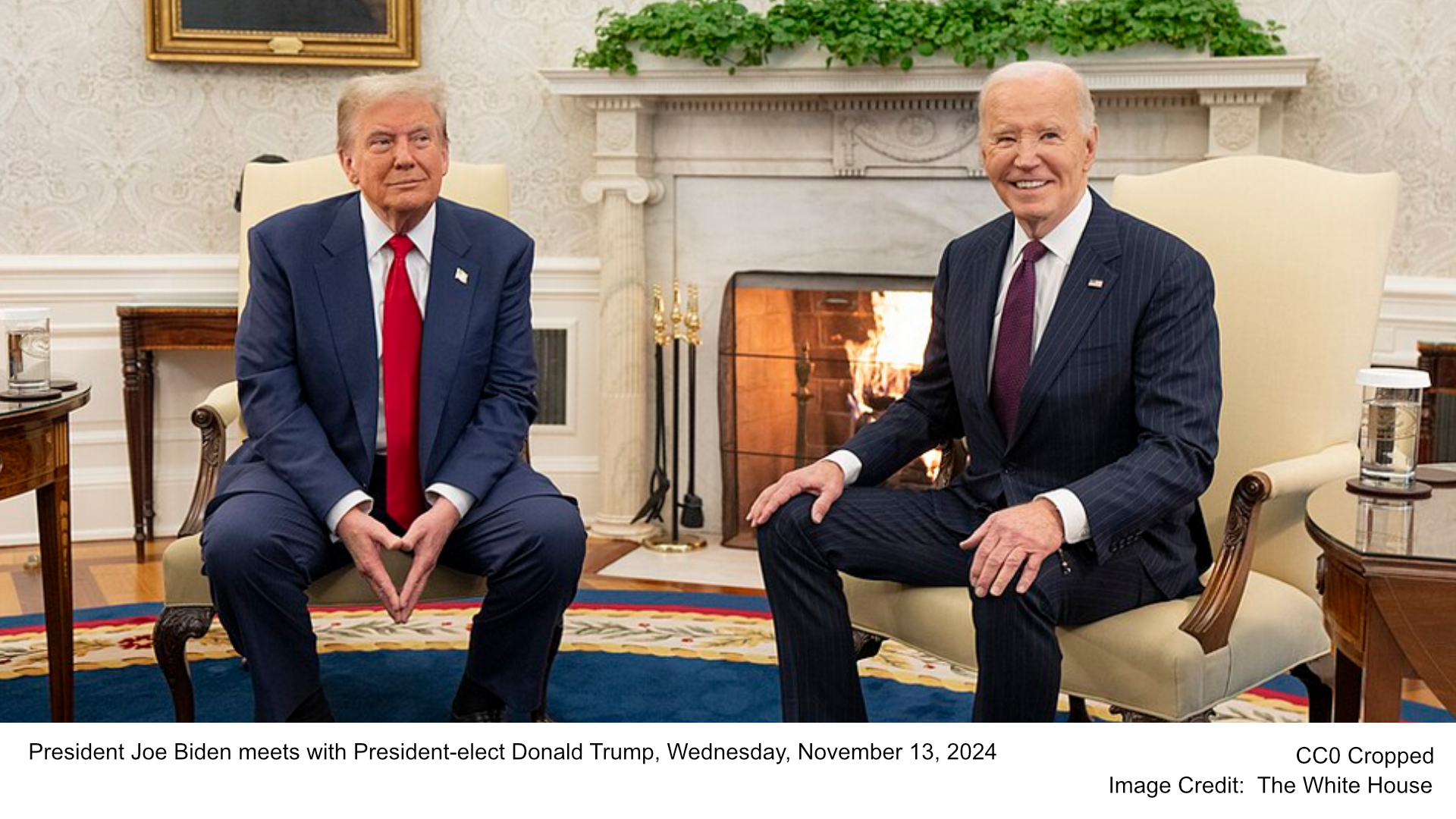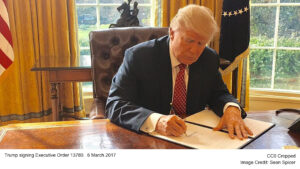Donald Trump was sworn in as the 47th President of the United States on January 20, 2025, marking the beginning of his second term with bold actions and a renewed commitment to his “America First” agenda. The day featured immediate executive orders that emphasized immigration reform, economic nationalism, and a shift in foreign policy.
Play Count: 3
- Immigration Overhaul: President Trump reinstated strict border security measures, including ending “Catch and Release,” suspending parole programs, and reintroducing the “Remain in Mexico” policy, emphasizing enforcement and deterrence.
- Sweeping Pardons: Trump granted clemency to over 1,500 individuals, including January 6 protesters, framing the move as correcting perceived political injustices.
- Economic and Policy Reversals: The U.S. withdrew from the WHO and the Paris Climate Agreement while reinstating tariffs on Mexico and Canada, underscoring Trump’s economic nationalism.
- Foreign Policy Shifts: Trump signaled a new approach to Russia-Ukraine tensions and pledged support for Gaza redevelopment, focusing on diplomacy and regional stability.
Left Perspective: President Trump’s second term begins with a divisive and aggressive agenda, focusing on policies that critics argue prioritize nationalism over global cooperation and compassion. Immigration changes, such as reinstating the “Remain in Mexico” policy and ending parole programs, have drawn sharp criticism from human rights advocates, who warn that these measures will exacerbate humanitarian crises at the border. The suspension of programs like CBP-One, which helped streamline asylum applications, is seen as a step backward for vulnerable populations seeking refuge. Many on the left view these moves as politically motivated, aimed at energizing Trump’s base rather than addressing the systemic issues within the immigration system.
The pardoning of over 1,500 individuals connected to the January 6 Capitol attack has sparked outrage among those who see it as undermining accountability for actions that threatened the democratic process. By framing these pardons as correcting political persecution, Trump has further alienated moderates and deepened divisions within the country. His withdrawal from the Paris Climate Agreement and the World Health Organization are being criticized as reckless and shortsighted, leaving the U.S. isolated on critical global issues. For those on the left, these actions signal a prioritization of ideology over pragmatic governance, raising concerns about long-term consequences for the nation’s reputation and international relationships.
Right Perspective: President Trump’s swift and decisive actions signal a strong start to his second term, delivering on key promises that resonate with his supporters. His immigration policies, such as reinstating the “Remain in Mexico” program and ending parole programs, are hailed as necessary measures to restore order at the border and protect American workers. The pardons for January 6 participants are viewed by many conservatives as a correction of perceived political overreach, ensuring justice for those they believe were unfairly targeted. Additionally, the withdrawal from the Paris Climate Agreement and the WHO underscores a commitment to putting American sovereignty and interests first, avoiding entanglements in global agreements that some see as economically detrimental. For Trump’s base, these actions reaffirm his “America First” philosophy and project strength both domestically and internationally.
Strengthening Border Security
President Trump wasted no time reinforcing the country’s borders. His administration swiftly reintroduced key measures aimed at curbing illegal immigration:
- Ending Catch and Release: Trump reinstated policies to detain migrants rather than releasing them into the U.S. while awaiting court dates, signaling a tougher stance on border enforcement.
- Suspension of Parole Programs: Several Biden-era programs allowing migrants from specific countries to enter the U.S. were eliminated. The controversial CBP-One app, used to facilitate asylum applications, was also discontinued.
- Return of the “Remain in Mexico” Policy: Known officially as the Migrant Protection Protocols (MPP), this policy requires asylum seekers to stay in Mexico while their claims are processed, aiming to deter fraudulent claims and streamline immigration processes.
Supporters hailed these changes as decisive steps toward securing the nation’s borders, prioritizing American safety, and restoring order to the immigration system.
Executive Actions: Pardons and Policy Shifts
During a high-energy rally at the Capital One Arena, Trump announced widespread pardons for individuals convicted of crimes related to the January 6 Capitol protests. Approximately 1,500 people received clemency, alongside six commutations.
Critics expressed concerns about undermining accountability, but Trump and his supporters framed these actions as a necessary correction to what they perceived as political persecution under the previous administration.
Reversing Biden-Era Policies
President Trump took decisive action to reverse what he described as economically and strategically detrimental policies:
- Withdrawal from the WHO: Trump criticized the World Health Organization for financial inequities, highlighting that the U.S. contributed disproportionately compared to other nations like China.
- Reinstatement of Tariffs: A 25% tariff on imports from Mexico and Canada is set to take effect on February 1, reinforcing Trump’s commitment to protecting American industries.
- Climate Policy Rollbacks: The U.S. officially exited the Paris Climate Agreement, a move framed as prioritizing energy independence and economic growth over global agreements perceived as unfair to the U.S.
Foreign Policy Priorities
In his inaugural remarks, Trump outlined his vision for tackling international challenges:
- Russia-Ukraine Tensions: Trump pledged to open dialogue with Russian President Vladimir Putin, signaling a diplomatic approach to resolving conflicts.
- Rebuilding Gaza: The president discussed plans for Gaza’s redevelopment, emphasizing its potential as a prime location for economic growth given its geography and climate.
A New Chapter for Trump’s America
Trump’s second term begins with a focus on reasserting U.S. sovereignty, revitalizing domestic industries, and enforcing stricter immigration laws. His swift execution of campaign promises has reinvigorated his supporters, setting the stage for a presidency defined by assertive policymaking and a return to his signature America First philosophy.







Be First to Comment